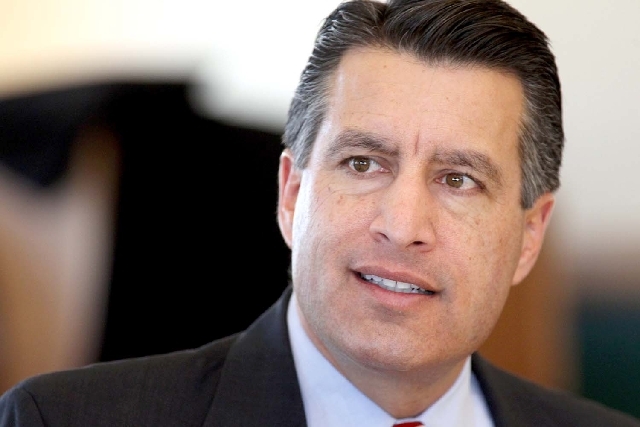Nevada to consider ‘vehicle miles traveled’ tax for road funding

CARSON CITY – Gov. Brian Sandoval said Monday he wants a study of road-funding options — including the potential of a “vehicle miles traveled” tax — completed in time for a policy debate in the 2015 Legislature.
The vehicle miles traveled concept is under review by the Nevada Department of Transportation. It would replace the current gas tax paid at the pump with a fee charged for each mile traveled, with the goal of creating equality between traditional vehicles and hybrids, which use less fuel and therefore contribute less to fuel tax revenues.
“It’s too important to wait until 2017,” Sandoval said after a briefing on the study presented to the Department of Transportation’s Board of Directors. Sandoval is chairman of the panel.
“These are very important policy implications in terms of investment in infrastructure,” he said. “I would prefer to have them consider it sooner rather than later.”
The Department of Transportation is working with the University of Nevada, Reno; UNLV; Oregon and Washington states on the regional multi-state alternative funding study.
The combined impact of increased fuel efficiency standards and the increased number of hybrid and electric vehicles will result in approximately 18 percent less revenue to the highway trust fund per year by 2016, the report to the board said.
“This will translate to about $40 million less revenue for the state of Nevada roads and highways,” the report said. “The impact will continue to grow higher as the number of alternative fuel vehicles grow and increased fuel efficiency standards increase.”
There have been privacy concerns raised with a vehicle miles traveled tax, however, which in initial discussions involved tracking drivers using GPS-like devices installed in their vehicles. This option has been eliminated as the study has progressed. Changing technologies like smart phone apps have opened the door to other ways of collecting data.
Sandoval was told technology can allow the tracking of mileage without using location tracking.
But there are also technical issues that need to be resolved, such as how to determine when a Nevada vehicle is being driven out of state where the tax would not apply.
Lt. Gov. Brian Krolicki, also a member of the board, said he understands the need to look at innovative ways to generate funding for road construction.
But he questioned whether the vehicle miles traveled concept is the best way to move forward.
Krolicki called the concept fascinating but “intuitively discomforting.”
The report to the board said that the tax and revenue issues will be addressed by elected officials.
“The sole purpose of this study is to find a sustainable, future-oriented payment and collection method to potentially replace the fuel tax as the fuel tax method is becoming less effective due to technological changes and its lack of flexibility with the changing needs and paradigm shift as a result of increased fuel efficiency standards and electric and hybrid vehicles,” the report said.
Oregon recently became the first state to pass legislation to allow the use of vehicle miles traveled instead of a tax per gallon on a voluntary basis. About 18 other states across the nation are also evaluating alternative funding mechanisms to potentially replace the fuel tax mechanism.
Contact reporter Sean Whaley at swhaley@reviewjournal.com or 775-687-3900.